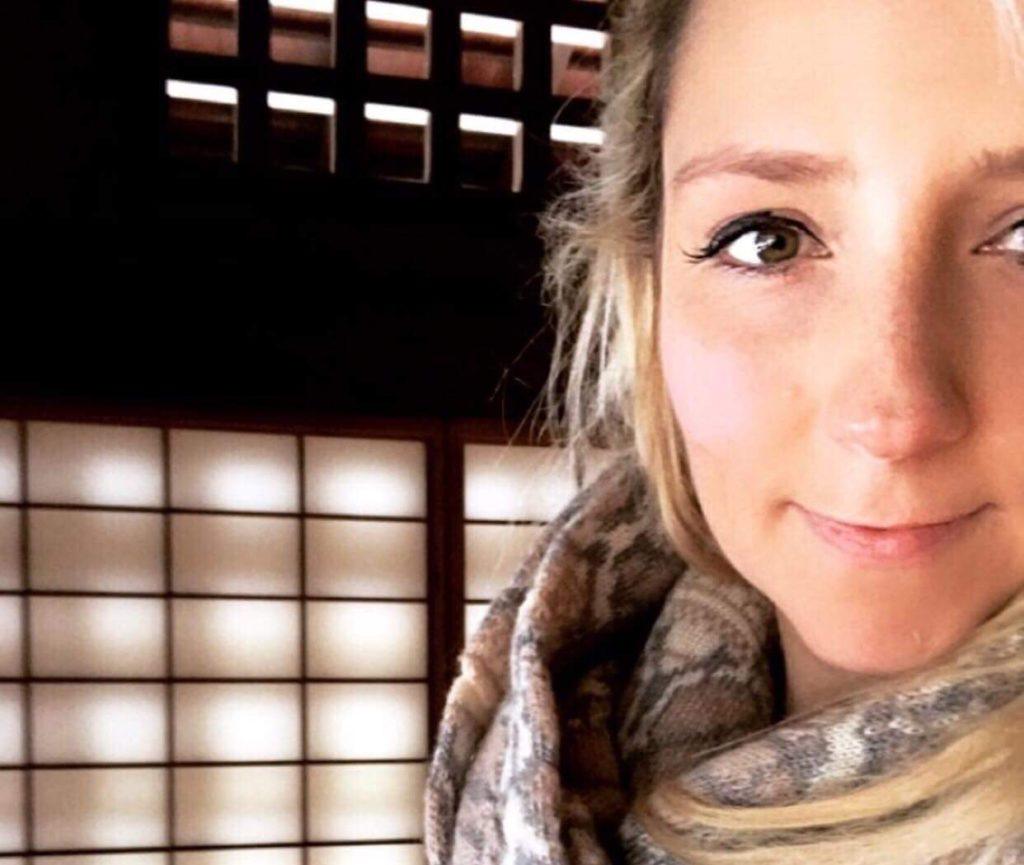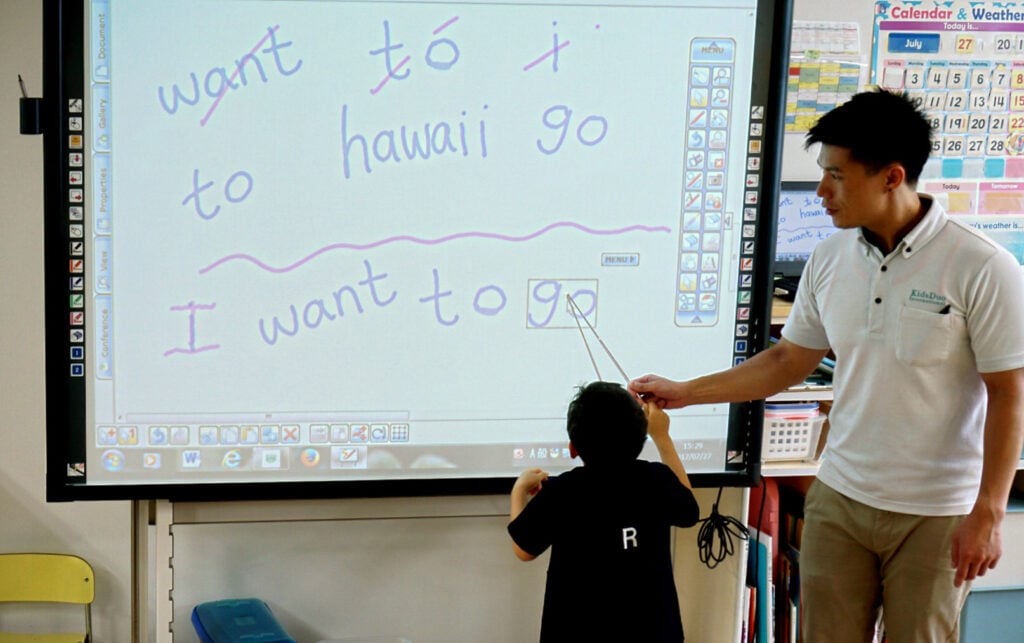At Go! Go! Nihon, we love hearing from Japanese students and their experience: we hope you do too! Talking to them offers us the unique opportunity to see and share things from their point of view. If you’ve been thinking about doing an exchange program in Japan, you don’t want to miss out on this article!
Today we interview Johanna, an Australian blogger from The Tokyo Chapter.
Hi Johanna, tell us more about you. Where are you from?
Hello! I’m from Melbourne, Australia.
How did you end up living in Japan?
I studied Japanese in high school (at my school it was compulsory to learn a language for two years and then we could decide if we liked it or not).
Clearly, I kept on going! I really love how different Japanese is and, at the time, it was very common for Aussie students to study Japanese as the trade ties between Oz and Japan were especially tight then. I first visited Japan as part of a two-week homestay program with school, with about 30 other students, and I really loved it. I found the “foreign” part of Japan to be so fascinating but also very safe at the same time.
After returning to Australia, my Japanese teacher recommended I try out for a one year scholarship to become an exchange student. I tried, but when I actually got it… I really had to think about whether or not I could actually do it. I mean, I was 15/16 years old.
How did you learn Japanese?
Well, that one year was, understandably, full-immersion learning at its fullest. Fullest! I was placed at a school in a country town in Okayama Prefecture called Kurashiki. I lived with Japanese families throughout the year and I was definitely the blondest and tallest teenager that gorgeous town had ever seen. Was it hard? Yes. I remember being homesick and having to pull out my English-Japanese dictionary in order to actually vocalise that I was feeling that way.
It was a truly incredible experience though and I grew up so much in that year. I became much more self-sufficient and I really learned who I was – without too many Western cultural elements to distract me or pull me in any particular direction. It also meant that I learnt a lot by listening. Because, as you know, the language skills for listening come way before the talking piece. I remember being frustrated at the dinner table one night because I really wanted to participate in the family conversation but I wasn’t quite there yet. I’m a total language nerd and I love that I’ll never be “finished” learning.

What do you appreciate the most of Japanese culture?
Hmm… it changes as I get older but I really love how Japanese people consider the needs of the group before those of the individual. You wouldn’t eat smelly food or wear a giant backpack on a busy train, for example – not because you were concerned about getting a fine – but because you are encouraged to imagine how it would feel if you were another person on that train and that smell was annoying or made your clothing smell funny… or how that backpack might squish you on your way to the office.
Oh and another thing – the customer service is better than anywhere in the whole world. No tips required!
What type of jobs did you do in Japan?
While I was an exchange student during that year I had a part time job in the winter where I worked at one of those fancy gourmet fruit counters in a department store. And then, in the summer, I worked at an amusement park – I literally walked around and sold helium balloons. Both jobs were fantastic for language practice.
After my year as an exchange student, I went back to high school and then university. But then I decided to go to Japan again on a working holiday visa. I taught English for a few years so that I could afford to go to language school in the evenings.
This time I was in Kobe, in the Kansai region. After a year or so I got a job at a ballet school. Japanese students were training to be professional ballerinas and lived close to the school campus and all their studies were also done on site, around their lessons and performances. Almost all of the dance teachers and accompanists were employed from overseas – mostly English-speaking countries. I, initially, was hired to help with the front reception and live in the school dormitories to help look after the students. But once they learned of my language skills, I soon became the interpreter in classes and all faculty meetings.
I worked here for more than two years until I was then hired by Okura hotels, one of Japan’s most well-known and most prestigious hotel corporations. I was assigned to the executive office, translating advertising materials and menus etc., and I also worked on the front desk to perform bilingual concierge duties. I ADORED this job. Apart from being a Mummy? Best job I’ve ever had.
This job taught me what its like to work in a Japanese organization and I learnt so, so much about honorifics and the importance of impeccable customer service and how it is intrinsically linked to Japanese culture.
What kind of difficulties did you encounter when you moved to Japan?
Like everyone, I went through severe culture shock, once the honeymoon period wore off.
My heart will always bleed for anyone going through this in any country in the world. It feels so awful to feel like you’ve made a mistake or been misunderstood and, not only really knowing why… but also not really be able to explain why you reacted in that particular way.
What’s your favorite Japanese expression?
“Sasuga” (“as one would expect” or “naturally”). I also love a good long stretched out “deshoooo?!”
What do you usually do in your free time?
I have two children so I don’t have that much “free” time but when I have a moment to myself I love writing my blog (Ed. The Tokyo Chapter) I love taking “adventures” with my kids. We plan to visit one place, one restaurant, and one park and then follow our nose for the rest.
What’s your favorite place in Tokyo?
Oh wow… my husband and I like to joke that our alter egos (without children) live in a high-rise in Daikanyama. I love pretty much everything about Daikanyama. I’m also in my happy place when wandering down grungy alleyways in Shibuya or the backstreets of Harajuku.
Is it easy to be a foreign mom in Japan?
Yes. Absolutely. Apart from when trying to take the train with a stroller. Japan needs way more elevators in train stations.
Can you describe the main differences between Australian and Japanese culture?
Oh wow… Just off the top of my head… there is definitely no rules or social hierarchy when interacting with others in Australia. You could pretty casually greet your child, your child’s teacher and your boss… in a similar way in Australia. In Japan there are many more ways to have conversations in order to come across as a kind and polite person, right from that first meeting.
Are you still living in Japan?
I actually relocated to Australia this year but, as my blog is now going better than ever, I am back and forth to Japan every month or so. I’m actually preparing to travel to Tokyo with both children in just a few weeks. Japan is a big part of my life – I can’t imagine not visiting, or being connected, often.

Thanks a lot Johanna for sharing your wonderful Japanese experience with us. We wish you all the best with your future endeavors.
If Johanna’s experience of doing an exchange program in Japan, and everything that came from that, inspired you to try it for yourself, get in touch with us today! We’d love to help you make it happen.













